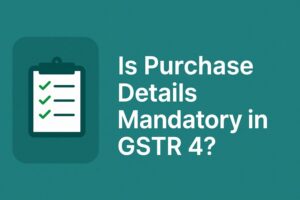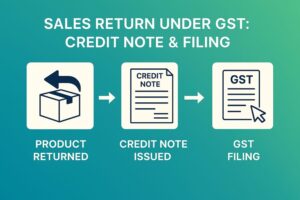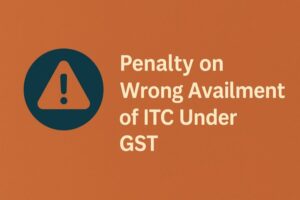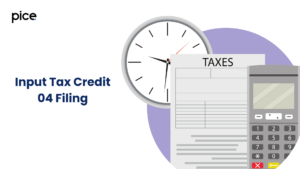Understanding GST Bill of Supply: Definition & Usage
- 22 Oct 24
- 7 mins

Understanding GST Bill of Supply: Definition & Usage
Key Takeaways
- Issued by Composition Dealers, Exporters, and Exempt Suppliers instead of a tax invoice.
- No GST or Tax Rate is mentioned on the bill of supply.
- No ITC Claim is possible with a bill of supply.
- Relaxations apply for small-value transactions and certain sectors.
- Includes Basic Details like supplier and recipient information but excludes GST details.
Understanding the bill of supply is essential for businesses operating under the Goods and Services Tax regime. While most companies issue tax invoices, certain businesses dealing with exempt supplies issue a bill of supply. Taxpayers registered under the GST Composition Scheme must issue a bill of supply as well.
This document helps businesses and taxpayers to comply with GST regulations without the complications of tax calculations.
In this blog, we will discuss the bill of supply under GST, its format, the difference between a bill of supply and a tax invoice and other associated details.
Who Needs to Issue Bill of Supply Under GST?
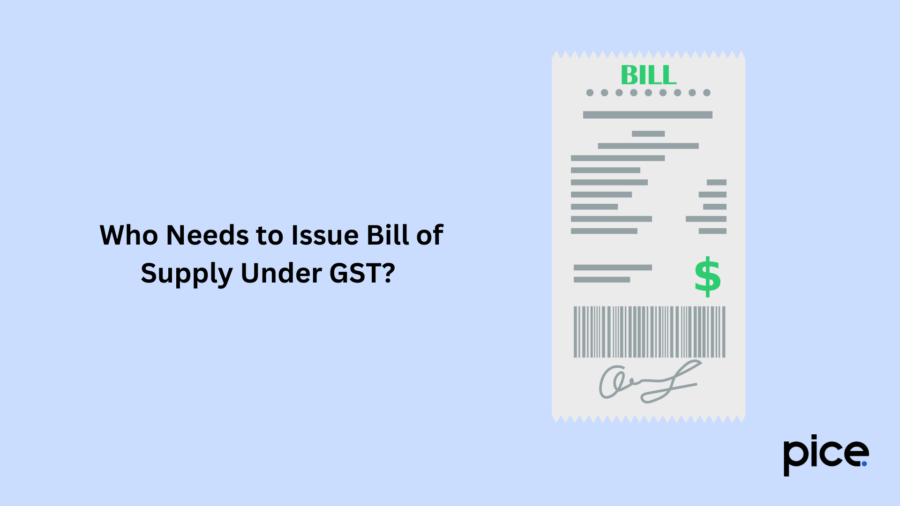
The following business owners need to issue a bill of supply:
Composition Dealer
If the annual revenue of a taxable person is less than ₹1.5 crores, he can use the composition program. The yearly revenue limit of Northeastern states and Uttarakhand is ₹75 lakh. Composition taxpayers can not collect taxes from purchasers. They need to deposit tax and make their GST payments. Since he cannot include GST in the invoice, instead of a tax invoice, a composition merchant must issue a bill of supply.
In addition to this, the composition dealer needs to state that he is a composition supplier and not eligible for tax collection on supplies.
Exporters
Since exports are zero-rated supplies, an export may issue a bill of supply instead of a tax invoice for the export supplies of goods and services. These are the details that an exporter needs to state on the bill of supply:
- Recipient’s name and address
- Delivery address
- Destination country’s name
Supplier of Exempted Goods
If a registered person supplies exempt goods or services, he will issue a bill of supply instead of a tax invoice. This serves as a proof of sale. For instance, if a person deals with agricultural products, he needs to issue bills of supply and not a tax invoice.
GST Bill of Supply Format
A GST bill of supply must include the following information:
- Name, address and GSTIN of the registered supplier
- Bill of supply number for a financial year (can not exceed 16 characters)
- Date of issue
- Recipient’s name address and GSTIN
- HSN (Harmonised System of Nomenclature) codes for goods and SAC (Services Accounting Codes) for services.
- Description of products or services
- Value of goods or services after deduction of any discount or rebate
- Digital signature of the supplier
Bill of Supply vs. Tax Invoice
Look at the table below to understand the difference between a bill of supply and a tax invoice:
| Basis of Distinction | Bill of Supply | Tax Invoice |
| Issue Reason | A supplier issues a bill of supply for exempt supply. | A supplier issues a tax invoice for a taxable supply. |
| Absence of Tax Detail | The total tax amount and tax rate are not mentioned on a bill of supply. | The total tax amount and rate of tax are mentioned on a tax invoice. |
| Claiming ITC | Claiming of ITC is not possible in the case of a bill of supply. | Claiming of ITC is possible in the case of tax invoices. |
| Issuable by Composition Vendors | Composite taxpayers can issue a bill of supply. | Composite taxpayers cannot issue a tax invoice. |
| Unregistered Recipient | The unregistered recipient does not have to mention any additional information on a bill of supply. | In case the value of the supply is more than ₹50,000 for an unregistered recipient, it is mandatory to include the following essential details: 1. Recipient’s name and address 2. State name and code 3. Delivery address |
What Are Some Relaxations in Case of a Bill of Supply?
Relaxation is applicable for bill of supply in the following cases:
- Value Lesser than ₹200: There will be no issue of bill of supply if the value of supply is below ₹200.
- No Requirement for Digital Signatures: When you are issuing a bill of supply electronically, there is no requirement for an electronic signature or digital signature.
- Relaxation of the Serial Number and Address of the Customer: Since there is a record of large transaction amounts in the transportation sector and banking sector, taxpayers are not required to maintain the serial number and address of the customer.
- Deemed Bill of Supply: In case of non-taxable supplies, such as alcoholic liquor and petroleum, any documents including tax invoices, that you issue under any statute shall be considered a bill of supply.
- Consolidated Bill of Supply: When the value of supplied goods or services is less than ₹1,200, a bill of supply is not requisite unless the buyer demands it. In this case, the supplier can issue a consolidated bill of supply every day, at the end.
- Invoice-cum-Bill of Supply: If a registered person is a supplier of both exempt and taxable goods, he can issue only an invoice-cum-bill of supply.
- Relaxation for SAC or HSN Codes: SAC is a 6-digit code, while HSN is an 8-digit code. Relaxation, which is given for HSN code:
| Turnover | No. of HSN digits |
| Below ₹1.5 crores | HSN code is not required |
| Between ₹1.5 and ₹5 crores | 2-digit HSN code |
| More than ₹5 crores | 4-digit HSN code |
Importance of Bill of Supply Under GST
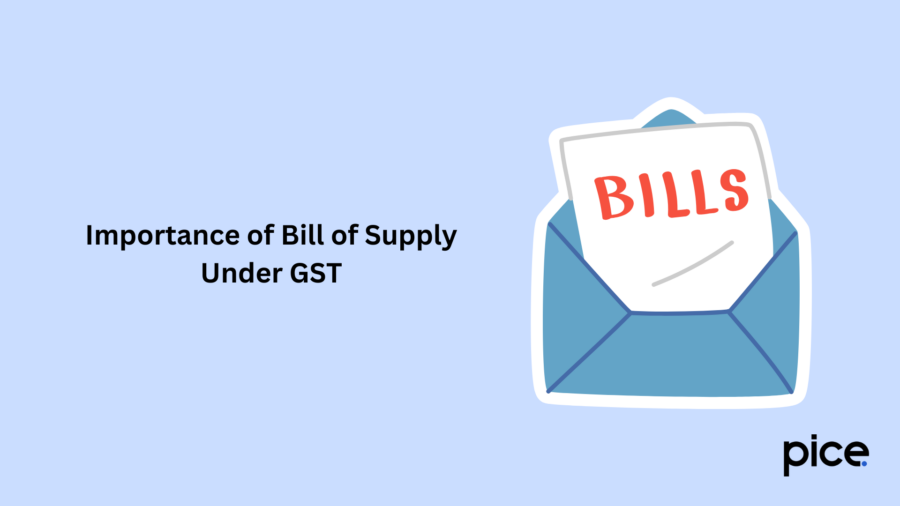
Bill of supply under Goods and Services Tax is important for multiple reasons. Here are two of those:
- Under the regime of GST, the bill of supply is used for exempt supplies supplied by composite dealers. It helps to differentiate between taxable and non-taxable supplies.
- It is a vital document, which serves as formal evidence for registered taxpayers who do not charge GST due to reasons like registration status and the nature of the supply of service or goods.
Conclusion
The bill of supply under GST plays a crucial role in the taxation system of India, especially for businesses, which do not require charging GST on their value of supplies. The distinction between a bill of supply and a tax invoice helps businesses avoid errors while maintaining proper financial records.
💡If you want to streamline your payment and make GST payments, consider using the PICE App. Explore the PICE App today and take your business to new heights.
 By
By 







